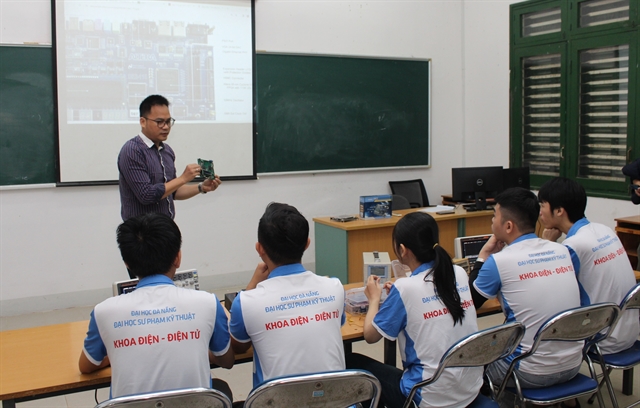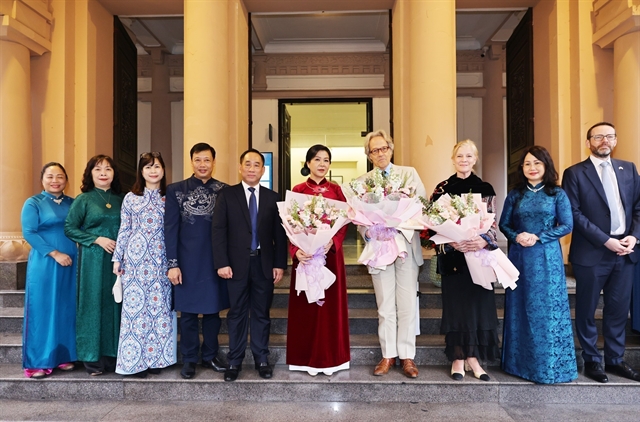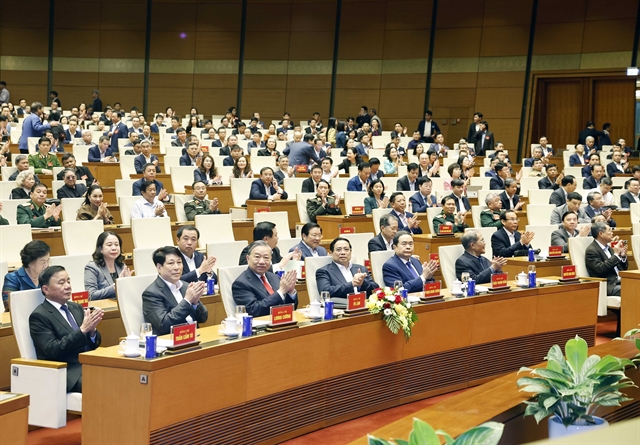 Economy
Economy

 |
| A lesson about semiconductor at Đà Nẵng University. Talent pool is considered an advantage of Việt Nam to join the global chipmaking chain. — VNA/VNS Photo Văn Dũng |
HÀ NỘI — Amid the surging demand for semiconductor engineers driven by the AI boom, many companies are turning to Việt Nam for its talent pool and competitive labour costs, positioning the Southeast Asian nation as a "magnet" for major players in the chip industry.
According to an article published by Nikkei Asia on Wednesday, Alchip Technologies, Taiwan's leading provider of AI chip design services, is expanding its R&D team into Việt Nam, where it is planning to open its first office this year. The company is likely to increase its headcount to up to 100 engineering staff in 2-3 years, CFO Daniel Wang said.
"After evaluating several Asian destinations for R&D team expansion, we realised that attracting talent in established tech economies like Japan might be challenging for Alchip's size and scale, though we are also expanding there," President & CEO Johnny Shen said.
"Việt Nam's promising pool of engineering talent and their strong work ethic make it a highly attractive option for us. We've been impressed by the dedication and commitment of Vietnamese engineers, who are eager to learn and contribute".
Also venturing into Việt Nam in search of young engineers are GUC and Faraday Technology, affiliate chip design service providers for TSMC and UMC, the article said.
Likewise, the Republic of Korea (RoK)'s companies are turning to Việt Nam, partly to offset a brain drain in their home market.
In addition to subsidies for R&D, executives at a recent meeting between executives and Minister for Small and Medium-sized Enterprises and Startups Oh Youngju called for an education system aimed at training foreign staff and a loosening of visa rules to attract them. The country that came up most often in the discussion is Việt Nam.
The RoK’s BOS Semiconductors entered HCM City in 2022 to set up a support team. But as executives jetted between Việt Nam and the RoK, comparing the two sets of staff, the quality of Vietnamese engineers convinced them to upgrade the team.
"They realised this could be a main R&D centre," country manager Lim Hyung Jun said in an interview. "That was really unexpected”.
BOS designs AI chips, including for autonomous driving, for automotive clients like Hyundai. Lim said reaching one goal, that of having a system on a chip (SoC) designed in Việt Nam, would demonstrate local ingenuity.
"It can shape the market trend," he said.
According to the Nikkei Asia, the availability of tech workers in a time of shortage could help Vietnam achieve one of its long-held dreams: moving up the tech value chain.
Marvell, for example, described Việt Nam as a "strategic location for the development of engineering talent."
Marvell aims to increase its local headcount to about 500 by 2026. The hiring plan includes not only staff for the offices in HCM City but also a new location in Đà Nẵng in central Việt Nam.
US-based Synopsys, the world's top chip design tool maker, is among the most active to venture into Việt Nam, where it currently has more than 500 employees across multiple design centres in several cities.
Robert Li, Synopsys Vice President of Sales for Taiwan and Southeast Asia, told Nikkei Asia that the high degree of interest among Việt Nam’s students and workforce to be trained in semiconductor engineering, coupled with the Government's funding and programmes, are helping establish the country as a semiconductor talent hub. — VNS




